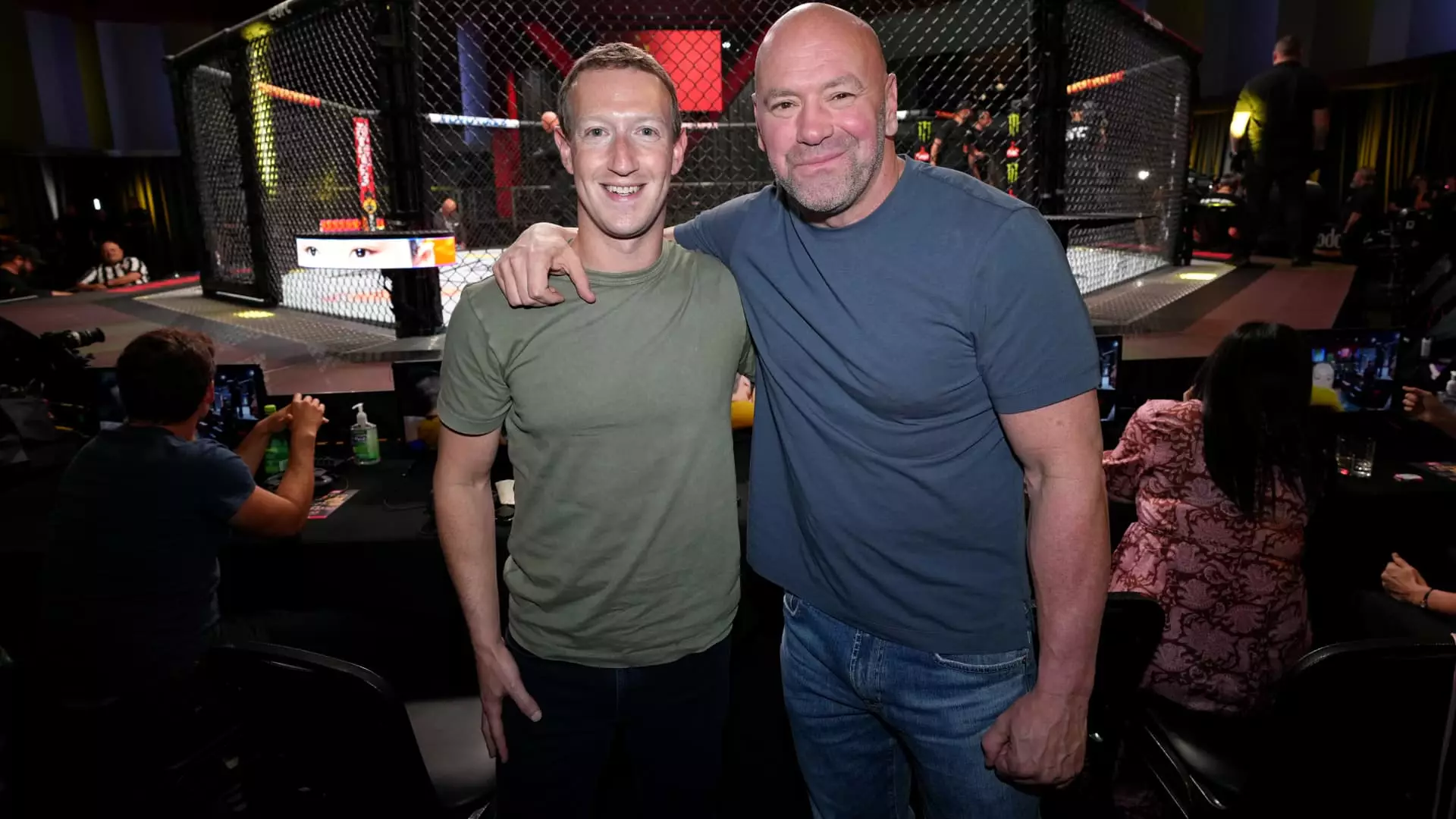The recent announcement of Dana White, the UFC’s CEO, joining the board of Meta, Facebook’s parent company, raises numerous questions about the merging paths of sports, technology, and politics. As society continues to navigate the intricacies of these areas, this appointment could signal Meta’s intentions to strengthen its influence and connections amidst a rapidly evolving landscape.
Dana White’s long-standing relationship with former President Donald Trump exemplifies the often complex relationships that exist within the corporate sphere. As White is officially welcomed to Meta’s board two weeks prior to Trump’s inauguration, it calls attention to the implications of such affiliations. Meta’s CEO, Mark Zuckerberg, has expressed admiration for White’s work in building the UFC into a thriving enterprise, demonstrating that corporate bonds can stem from various ideologies, interests, and backgrounds, even when previous tensions exist.
Zuckerberg’s pursuit of entrepreneurship shines through his bold sentiment expressed in a Facebook post about White’s contributions to the world of sports. Zuckerberg’s personal interest in mixed martial arts further complicates the portrait of a tech mogul crossing into the world of competitive sports, revealing a blended passion that fuels innovation both in technologies and public engagements. Given Zuckerberg’s recent interest in MMA, including an unfortunate injury during a sparring session, the intertwining of his interests with those of the sports community may spark intriguing developments for Meta as it expands its reach.
The Broader Impact of Celebrity Influence
Dana White’s ascent as a significant figure in the sports industry is often mirrored by the influence of celebrity on contemporary cultural phenomena. The juxtaposition of White’s relationship with Trump and Zuckerberg illustrates how intertwining connections can shape the business landscape. Consider the $1 million contribution from Meta to Trump’s inaugural fund, which, while controversial, underscores the financial clout tech companies possess in political arenas.
In this light, White’s influence surpasses mere sports management; it delves into the realm of cultural politics. His statements supporting Trump during election night exemplify how sports figures can serve as influential voices within political dialogue, particularly in a climate where public personas carry weight. As athletes and sports executives expand their spheres of influence, the relationships formed can significantly impact societal narratives and consumer behavior.
A Tech Giant’s Vision for the Future
Zuckerberg’s attempt to cultivate a diverse board of directors gives insight into his vision for the future of Meta. Alongside White, other notable individuals such as John Elkann of Exor and former Microsoft executive Charlie Songhurst aim to steer the company through uncharted waters involving artificial intelligence and future market strategies. This blend of different industries represented on the board could pave the way for innovative approaches to technological development that integrate sports and entertainment.
The focus on emerging technologies, combined with White’s clout in the sports arena, places Meta in a strategically advantageous position. The potential merger of sports entertainment, social media, and advanced technology could produce a comprehensive platform appealing to broader demographics. This unprecedented convergence may result in novel consumer interactions and advertising strategies targeting younger audiences whose interests span across both sports and tech.
However, Dana White’s troubled history, accentuated by a public incident that brought scrutiny to his behavior, thrusts concerns of accountability into the spotlight. While he has made amends, the charged dynamics of celebrity influence and corporate governance draw attention to the moral responsibilities that accompany such status. Public figures in positions of power must navigate the duality of being role models while simultaneously managing personal controversies. This interplay can become tricky, especially when neighboring industries rely on accountability, trust, and adherence to ethical standards.
As sports and technology continue to intertwine, acknowledging the nuances and complexities accompanying such positions is essential. Meta’s strategic board appointments may pose opportunities for driving progress at the intersection of these fields, but the foundation of such partnerships must be built upon integrity and a commitment to ethical practices.
Dana White’s entry into Meta’s board encapsulates a broader narrative about the interconnectedness of sports, technology, and politics in contemporary society. The implications of such a partnership will undoubtedly ripple through various sectors as corporations redefine their roles and responsibilities in an increasingly complex environment.


Leave a Reply